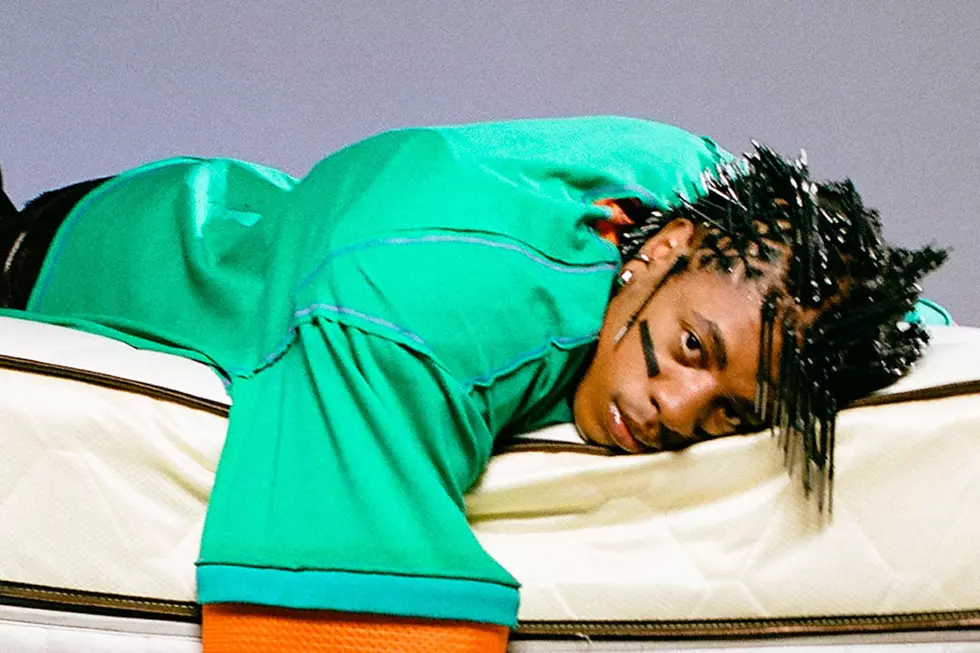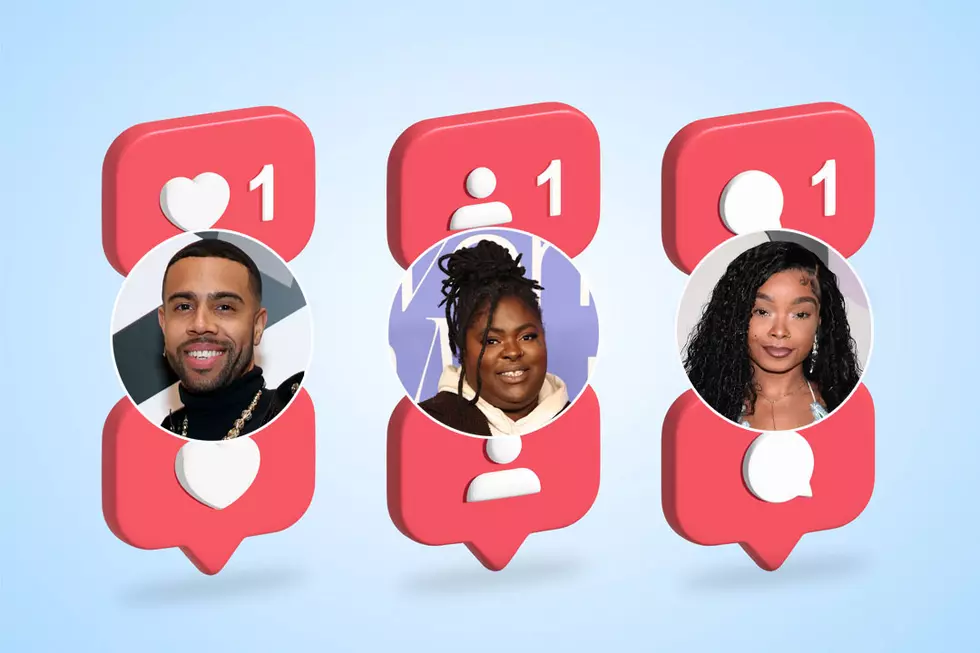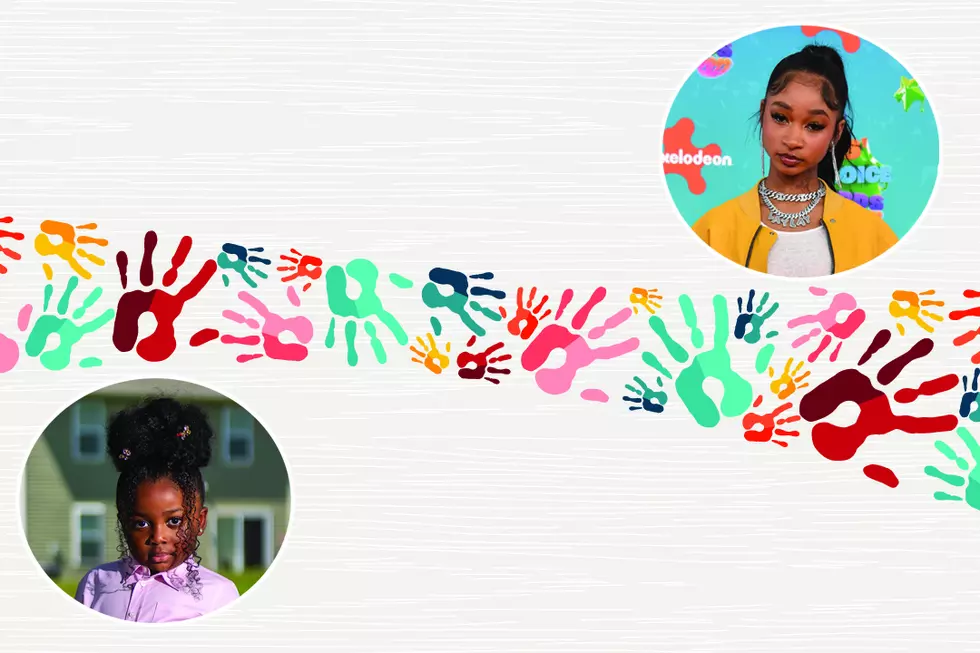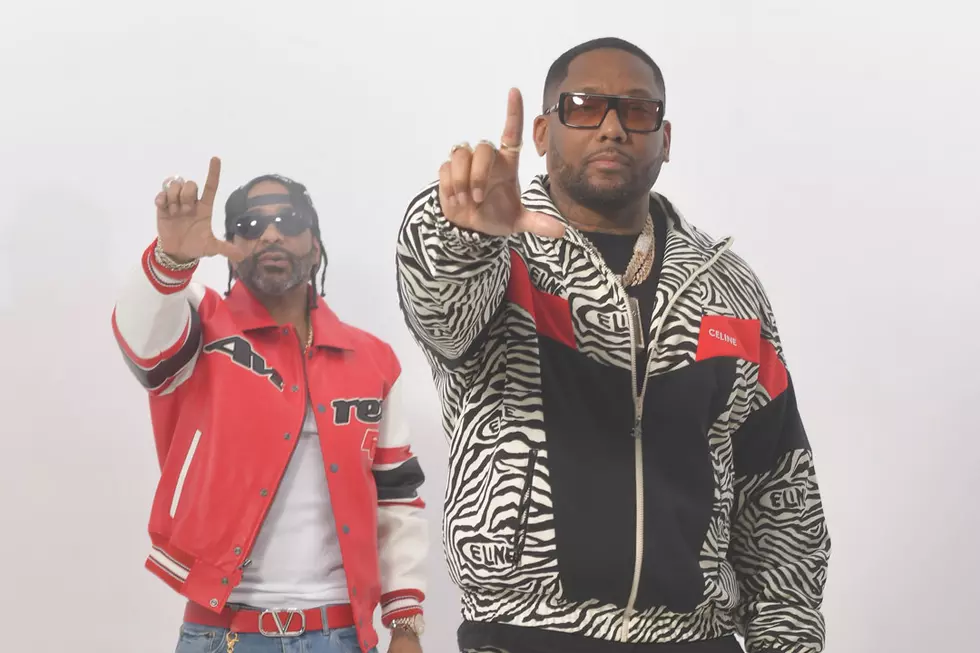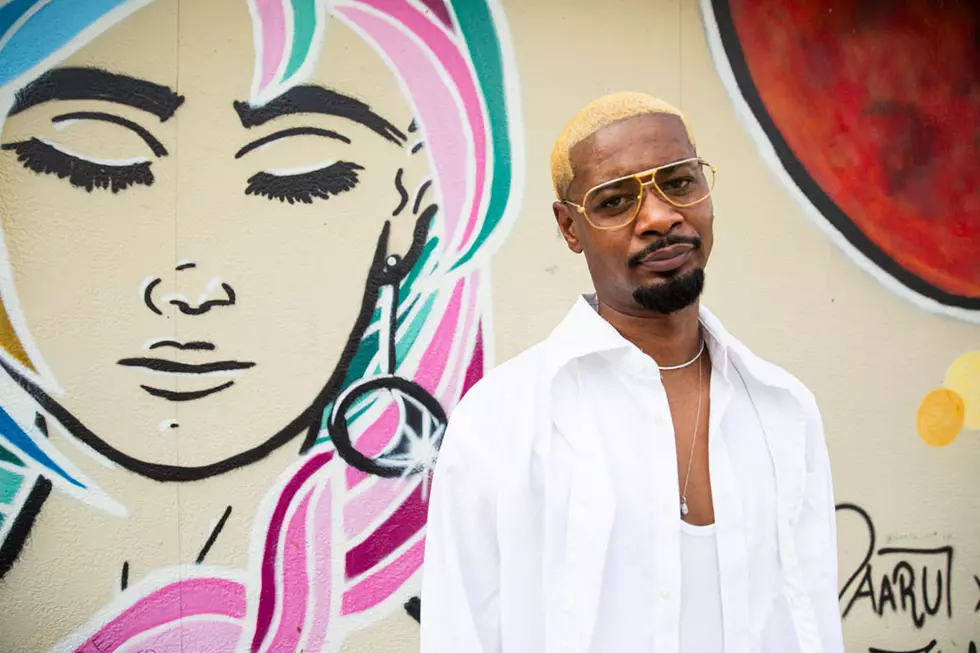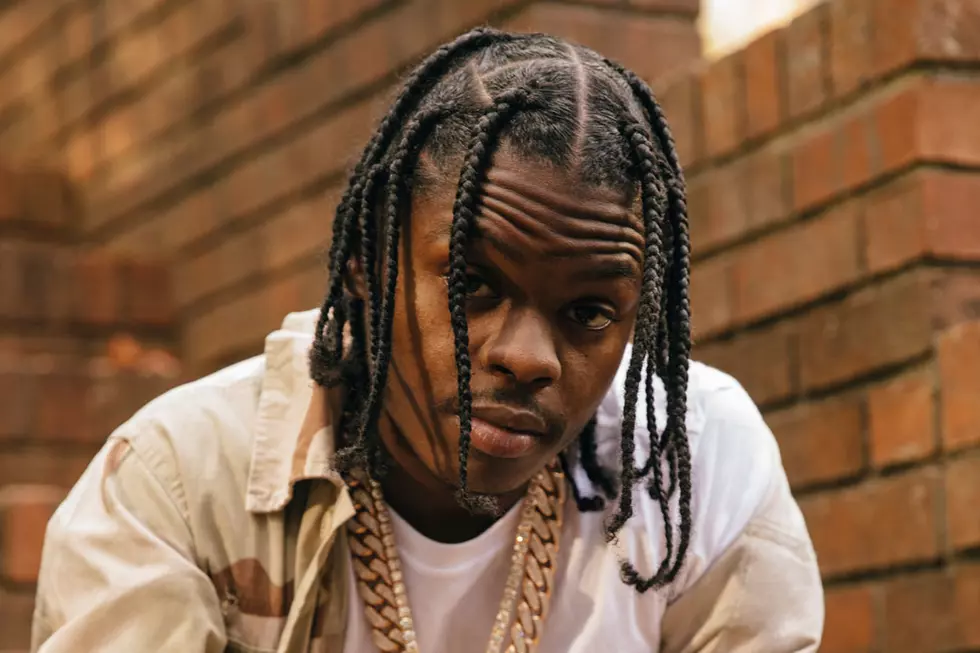I’m a King
 The elevator stops on 29, but it’s the wrong floor. It’s actually the right floor, just not the intended destination. A healthy-looking sister in a flowing white summer dress greets the visitors and escorts them down an interior set of mahogany steps to the correct level. “He’s not here right now,” she says. “But y’all can wait.” The “he” of whom she speaks is Antonio “LA” Reid, chairman of Island-Def Jam Music Group. (You know, Jay-Z’s boss.) “Here” is his office, nestled inside the hallowed walls of a 38-story building in Midtown Manhattan. “Y’all” is a group of men comprised of a manager named Coach K; a lawyer named Donald Woodard; and Young Jeezy, a man known, loved, and feared on Southern streets as the last word in reality rap. At this moment, a monorail of an itinerary has Jeezy and his representatives inside Reid’s quarters for “a very crucial meeting.” But Jeezy will wait. Patience has been hard learned through his 26 years—especially during those working the notorious Southern drug trade, a.k.a. the Trap.
The elevator stops on 29, but it’s the wrong floor. It’s actually the right floor, just not the intended destination. A healthy-looking sister in a flowing white summer dress greets the visitors and escorts them down an interior set of mahogany steps to the correct level. “He’s not here right now,” she says. “But y’all can wait.” The “he” of whom she speaks is Antonio “LA” Reid, chairman of Island-Def Jam Music Group. (You know, Jay-Z’s boss.) “Here” is his office, nestled inside the hallowed walls of a 38-story building in Midtown Manhattan. “Y’all” is a group of men comprised of a manager named Coach K; a lawyer named Donald Woodard; and Young Jeezy, a man known, loved, and feared on Southern streets as the last word in reality rap. At this moment, a monorail of an itinerary has Jeezy and his representatives inside Reid’s quarters for “a very crucial meeting.” But Jeezy will wait. Patience has been hard learned through his 26 years—especially during those working the notorious Southern drug trade, a.k.a. the Trap.
In his trademark Chanel shades and black headband-style bandanna, Young Jeezy exemplifies the oft-flung hip-hop phrase “a hustler grindin’.” After independently amassing a following of state-parade proportions below the Mason-Dixon Line, he’s garnered himself a solo seat here at the Reid-Carter Estate, as well as a roster spot on P. Diddy’s Southern expansion team, Boyz N Da Hood. Simultaneously cashing checks from two of hip-hop’s most prestigious brands? Quite a coup for someone who doesn’t even consider himself a musical artist. “I don’t even want to be no rapper,” he says. “The only time I’m rapping is when I’m in that booth. I don’t walk around with no pad or no pen. I know I got love for this music ’cause it’s a hustle.”
 It’s a hustle Jeezy has studied well. In today’s street-cred obsessed rap market, an artist’s lifestyle is often more important than his talent. (Think DMX or Jim Jones.) It’s safe to say that many of Jeezy’s fans are more intrigued by the man than the music. As another popular aphorism would put it: He gets it how he lives. “Tupac was one of the realest,” says Jeezy. “And everybody bought his records ’cause he was that type of dude. I want to be in that position. Not a position where I might have a hot song and then three months later you don’t know who I am. I’d rather be in the hearts and minds instead of on the shelves.”
It’s a hustle Jeezy has studied well. In today’s street-cred obsessed rap market, an artist’s lifestyle is often more important than his talent. (Think DMX or Jim Jones.) It’s safe to say that many of Jeezy’s fans are more intrigued by the man than the music. As another popular aphorism would put it: He gets it how he lives. “Tupac was one of the realest,” says Jeezy. “And everybody bought his records ’cause he was that type of dude. I want to be in that position. Not a position where I might have a hot song and then three months later you don’t know who I am. I’d rather be in the hearts and minds instead of on the shelves.”
But who is Young Jeezy, really? They say he’s from Atlanta. He says he’s not. They say he’s just another dope boy trying to launder dirty cash. He says he’s just rap’s “Trapper of the Year,” trying to come clean. They say he’s a part of one of the country’s fiercest orga-nized gangs, BMF (Black Mafia Family). He says, “No comment.” They say he’s trouble. His label says he’s the future.
Jay Jenkins was actually brought into the world somewhere in North Carolina. He moved to southern Georgia, though, at such a young age, he doesn’t even know where in North Carolina he was born. It wasn’t like Jeezy had much Q&A time with his folks—he describes his childhood as “empty.” Most heavily influenced by a set of older cousins he says were the first cats earning serious street money in Atlanta, young Jay was entranced by the flash and fast cash of the mid-’80s lifestyle. Ferraris and four-finger rings, big block cellulars and local rap crews like the Hardy Boys on payroll. To hear him tell it, it was like Paid in Full meets I’m Bout It. When he was 10, though, the dudes who’d kept him fresh to death and envied in the school yard were suddenly yanked away and sent to the penitentiary.
His parents were separated. When his mom couldn’t handle him anymore, she’d send him to his dad. When dad got tired, he’d shoo him to an aunt, then a grandmother, and so on. By the time he was 12, Jeezy had moved out and hit the streets. Still yearning for the high life his cousins had shown him, he cut ties with kin and took to trapping on his own.
“When you being a G, it’s hard going through your day knowing how your family feels about you,” he says. “You in gunfights and all kinds of dumb shit, and they steady calling you like, ‘Are you okay?’ Then the [thought] of getting caught and doing real time, you don’t want that on your conscience when you know you had a chance. It’s almost like being in the military—you wanna serve your country, so you gotta be away from your family and deal with what you gotta deal with.”
A “great meeting” with LA Reid helps Jeezy to forget that it’s 1 p.m., he’s been awake since 5:30 a.m. after falling asleep at 4 a.m., and he has a nonstop day of press and a night of recording ahead of him. Next up for Jeezy is an on-camera interview with the Music Choice television network. In a plain white studio a couple blocks north of Madison Square Garden, he sits on a stool and slyly avoids the adorable dreadlocked reporter’s questions as to exactly why he calls himself “Da Snowman.” A one-on-one with DJ Envy at Sirius radio follows, it’s Jeezy’s second radio interview of the day (the first was at 6 a.m., for Hot 97’s morning show). And again Jeezy is tight lipped about his days on the streets. He doesn’t say much about the nine months he spent at a Savannah, Ga., boot camp in 1994 on a possession charge. He keeps his past in the past.
More From XXL
